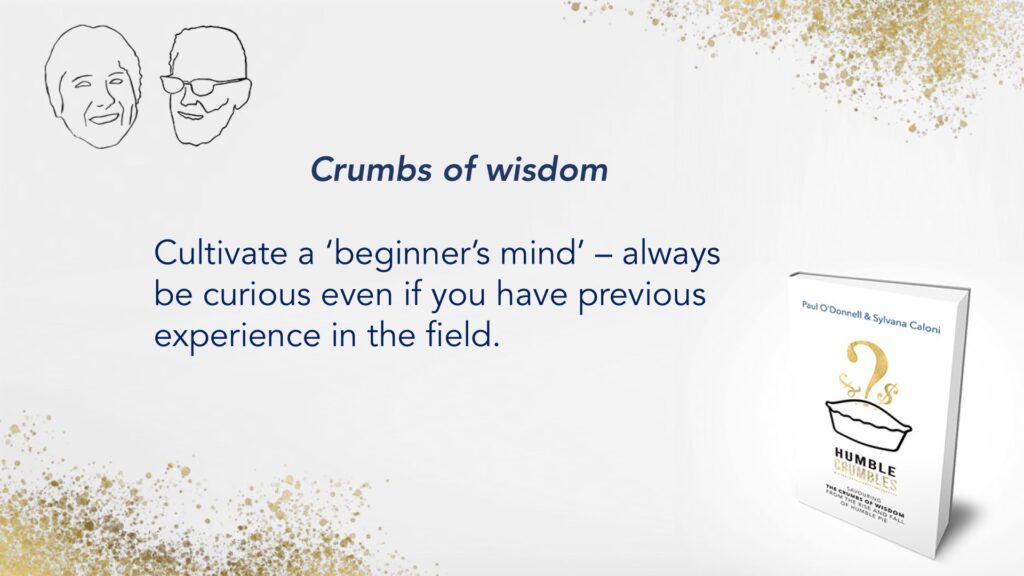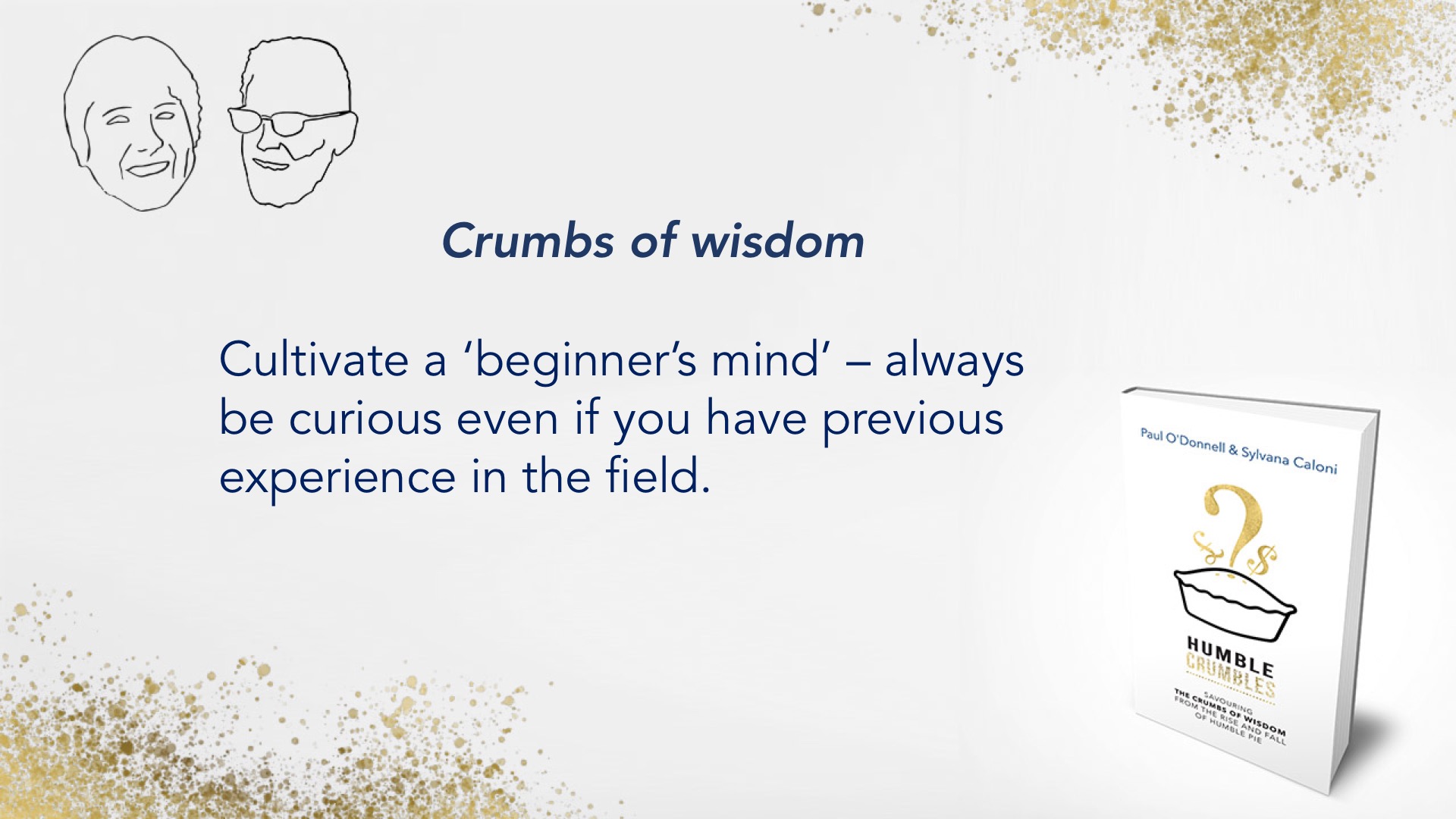Knowledge is an asset.
Our reputations are built on our knowledge.
Market traders arbitrage differential knowledge to make profits.
Yet when can knowledge be a disadvantage?
In our book, Humble Crumbles: Savouring the crumbs of wisdom from the rise and fall of Humble Pie, Paul O’Donnell and I explore how sometimes knowledge from our previous profession actually gets in the way of starting up a new business.
Paul had a track record of success in global financial markets and had successfully created 3 other businesses. And much of his knowledge and experience were helpful as he considered the gap in the market and his business plans.
Yet his prior experience also resulted in some blind spots. For example, he assumed the factory workers would be similarly motivated by bonuses and equity as his former financial services colleagues.
When we think we “know it” we tend to be less open to different perspectives and lived experiences. We may also go into conversations with colleagues, staff or suppliers with a pre-determined outcome. That is, we are closed to different interpretations and we simply listen to confirm what we already know or believe. In extreme cases we can become arrogant and dismissive of other’s views.
In our book, Paul and I encourage our readers to develop a “beginner’s mind”. This doesn’t mean setting aside everything we know. It means seeking out what we call “positive naysayers” and testing, learning and tweaking our business ideas and proposals, and how we engage with others.
How do you stay open to new information or different perspectives?
If you would like to explore how to transition from the corporate world to becoming an entrepreneur contact me sylvana@sylvanacaloni.com or +44 (0) 7952 068133.


